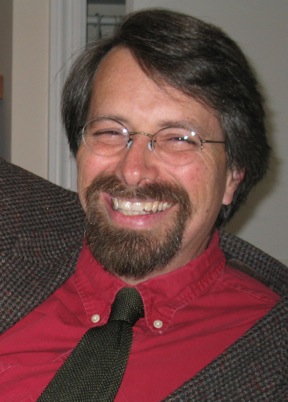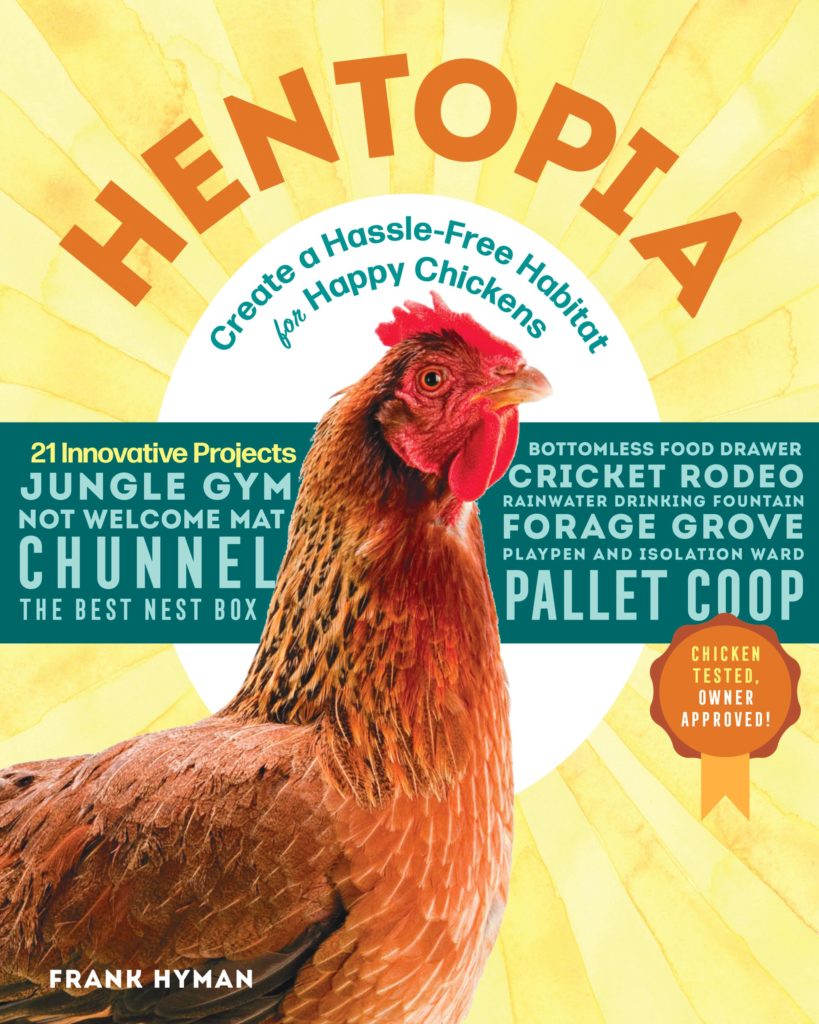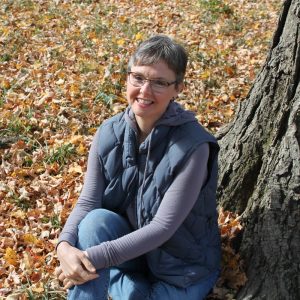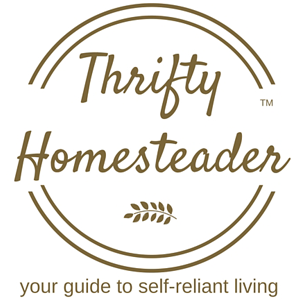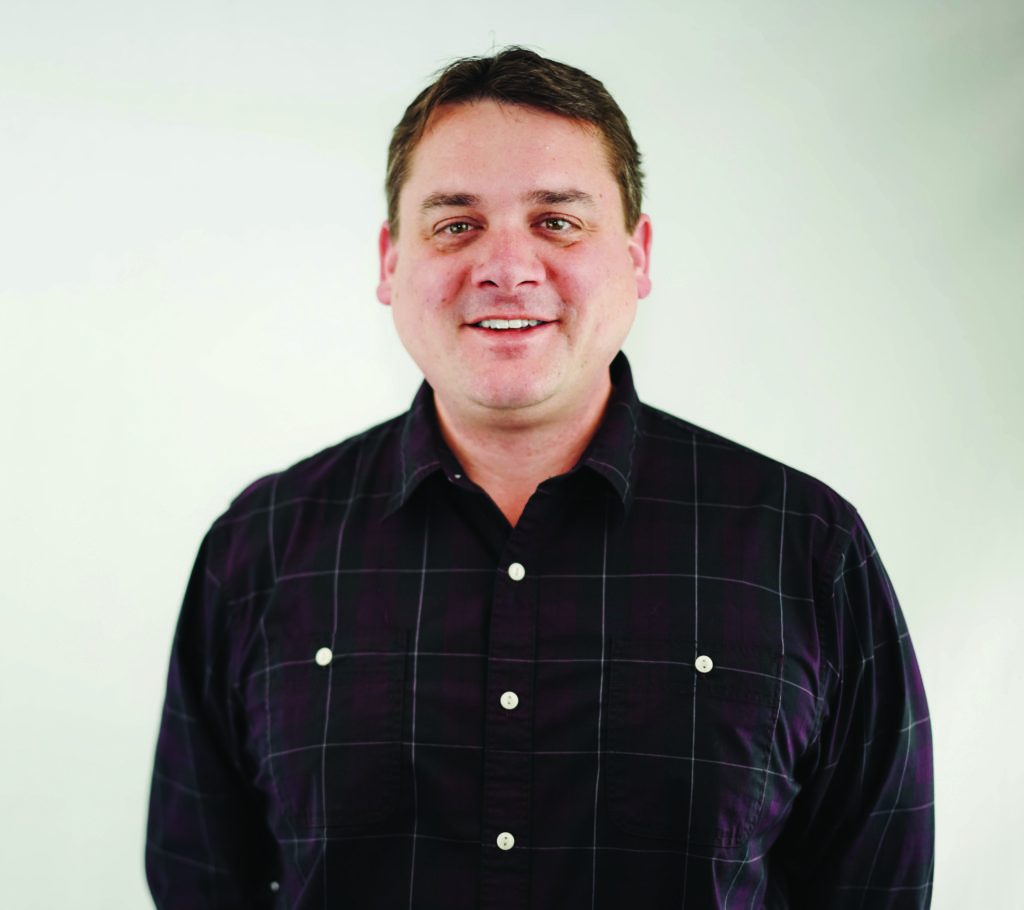Podcast: Play in new window | Download
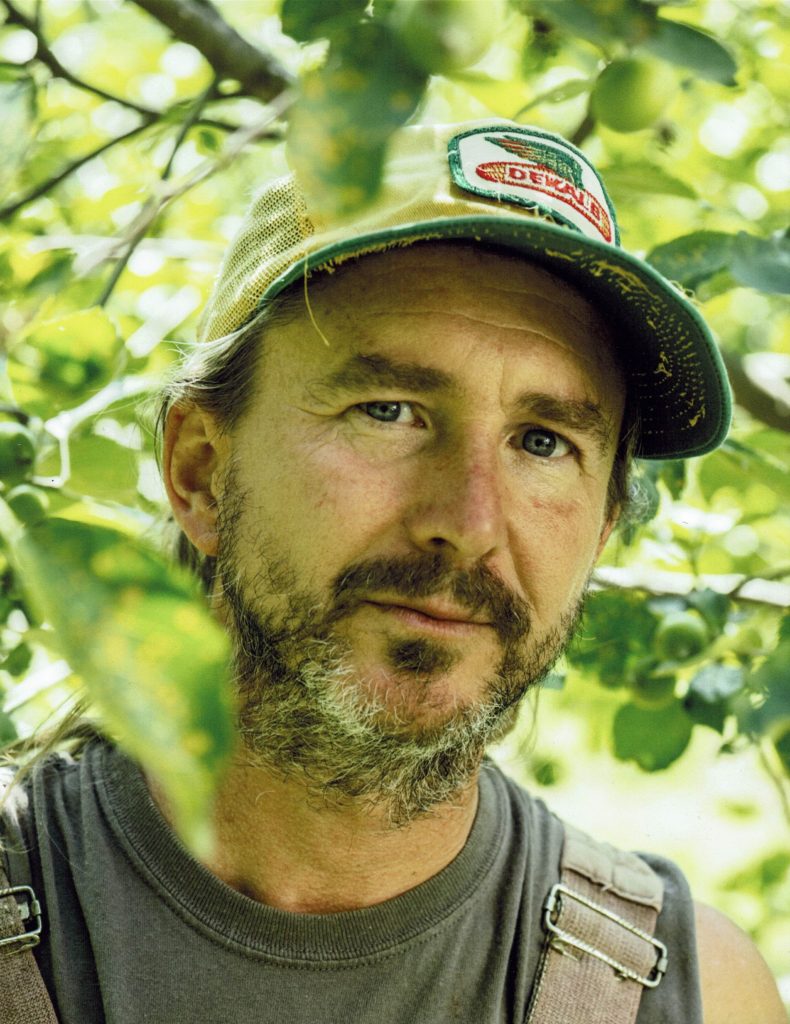

Episode 011.
Do you truly love what you do as a business? Is your passion so clear to others that it’s undeniable?
Andy Brennan is truly passionate about his craft and trade. Andy is the founder and owner of Aaron Burr Cider and author of Uncultivated: Wild Apples, Real Cider, and the Complicated Art of Making a Living.
A life-long artist, Andy did not set out to be a wild apple cidermaker (though always intrigued by the fruit), a writer nor a speaker. His publisher, Chelsea Green Publishing, were able to seduce him to attend and speak at the Mother Earth News Fair being held in Albany, Oregon. Due to his interest in visiting Oregon, (he admits a desire to interview some Pacific coast trees) he unknowingly was set on a direct course to be interviewed by Brian J. Pombo for the Off-the-Grid Biz Podcast.
How does a struggling artist end up becoming an apple farmer? How does he stand out in the growing and crowded cider market?
The way Andy mixes his business with his philosophy, while continuing an uncompromising life is instructive and liberating to any searching or struggling entrepreneur. Listen now!
Find out more about Andy Brennan: http://aaronburrcider.com/
Find out the business events secrets for growing and strengthening ANY company: http://brianjpombo.com/secrets/
Full Transcript
Brian: Have you found any way around that yourself?
Andy: For sure. The best solution is always to build intimate relationships with customers which ask questions and you know, certainly large companies, they don’t have the time or the inclination to have one on one relationships with their customers.
Even though I said I’m an introvert, I can’t hide from the fact that bonding with my customers is the only thing that that’s going to save, I think people like me from actually becoming road kill to bigger, faster and cheaper.
Podcast Intro: If you’re someone who refuses to go along to get along, if you question whether the status quo was good enough for you and your family. If you want to leave this world better off than you found it and you consider independence a sacred thing. You may be a prepper, a gardener, a homesteader, a survivalist, or a farmer or rancher, an environmentalist or a rugged outdoorsman.
We are here to celebrate you whether you’re looking to improve your Maverick business or to find out more about the latest products and services available to the weekend rebel.
From selling chicken eggs online, to building up your food storage or collecting handmade soap.This show is for those who choose the road less traveled the road to self-reliance for those that are living a daring adventure life off the grid.
Brian: A homestead farmer who began making cider in 2007 from wild apples. After rising to national prominence with his cider company, Aaron Burr Cider. He wrote a book Uncultivated, which just came out.
Andy Brennan, welcome to The Off The Grid Biz Podcast.
Andy: Thank you. It’s great to be talking to you, it’s an honor.
Brian: Yeah. So, who are you, and just let us know a little about what you do?
Andy: My name is Andy Brennan and I am a homestead farmer, Apple farmer and cider maker. The town of Wurtsboro, New York, which is 75 miles North and West of New York city.
It’s in the foothills, the first few mountains as you’re approaching the Catskill mountains and we’re very close to the Hudson Valley. But in terms of a cultural region, we’re more associated with the Catskills.
Brian: So how did you end up here? What’s your life story up to this point?
Andy: Well, I was an artist first. That’s what brought me to New York city from originally I’m from the Washington D C area. And after art school, I ended up in New York.
Like a lot of people ended up living on couches for 10 years, trying to be the, you know, famous artists or whatever.
Eventually I got jobs working in architecture that at least pays little or as the art wasn’t working out.
After finding a sort of a love for Apple trees, I then looked for land near New York City where I can, grow apples.
Brian: Very cool. So what form of art were you interested in?
Andy: Well, I’m a painter and ever since I was a kid, I excelled, I guess in art, but also perhaps at the expense of being extremely bad at all the other subjects. It was kind of the one field in which I showed any talent for.
I’ve always been encouraged, I suppose, on that level to draw and paint. That’s how I ended up in art school.
But, uh, I’d say I’m not, I’m currently innovative paint as an artist. I’m inspired by people like Sazon who just looked at his work and say it’s just about the act of seeing transcribing, um, that act of seen on a painting or on a canvas.
So it’s not, I guess you would say I am. I worked from life and it’s somewhat realistic.
Brian: Very cool. You’ve written a new book, like we mentioned the full title Uncultivated: wild apples, real cider and the complicated art of making a living. So tell us about that.
Andy: Uncultivated is my original title was a book in which I wanted to describe my, methodology as an Apple grower and why I feel like that’s important to cider making.
The subtitle is – wild apples, real cider, which is an ancient drink, to distinguish it from the modern sort of a hard cider that most people are familiar with and the complicated art of making a living.
It’s a reference to what it’s like to be an Apple grower and cider maker at a small homestead farm level.
I should mention that subtitle was proposed and we loved it by a man by the name of Ben Watson, who’s not just my editor. He’s also the publisher of one of the most popular cider books out there.
But he’s also the guy who organized the Cider Days, which is the nation’s largest cider event. I worked very close with him on the book and I owe him a great deal of gratitude because I’m not a writer, I’m a farmer.
Brian: So what led you to write the book in the first place?
Andy: Well, originally I wanted to explain sort of the 101’s to people. I get at the farmer’s market all the time, People asking like, how do you make cider?
Or what makes these apples different than conventional apples?
And I wanted to explain that or give it the full space to thrive. What makes it different and what is cider and all those things.
But, there’s another reason and I think this is really what I ultimately was fueled by when I wrote book. Well, I want to show people what to look at, what to see when they see cider, what types of businesses and farms are growing apples.
In keeping with the ancient tradition of cider and, a world that modernity has really overlooked. I find it stunningly beautiful.
The cider world, the Apple world, these old homestead farms. And I wanted to paint that picture for people so that they know what they’re looking at when they approach cider.
Brian: Excellent. So did you enjoy the process of writing a book and getting it published?
Andy: I really did. It was…I’ve been writing blog journals now for 10 years, which is just more like a diary that I would publish. And I think there’s like two readers. I’ve been doing that for a long time.
When approached by my editor about writing a book, my original thought was that I would take all these blog posts, many of which weren’t even published. They’re just on my computer and I would sort of create a narrative which tied them together.
But it morphed into something different as I was writing it and it was just absolutely obsessed writing for on average, 12 hours a day for every day, for, for a year.
Brian: Wow.
Andy: I never got tired. I woke up and I just couldn’t wait to get writing again. So yeah, I really enjoyed it.
I should also say the last year when I did write, it was an off year for Apple, so there was literally nothing to do on the farm, so I really lucked out that way.
Brian: Yeah, that’s useful. Do you see yourself writing another one in the future?
Andy: Maybe.
Right now I don’t. It feels good to be a done with that project and I’m just in love with being out in the orchard right now. The same sort of passion I had for writing last year is right now, it’s just applied to my orchard and not excited about making cider this fall.
I just want to spend every moment working with the trees. And, um, so that’s where my energy is now, although I do have ideas that are brewing so it might happen.
Brian: Yeah. You’re slated to present at the Mother Earth News. Fair. One of the main reasons how we found you. What are you planning to be covering? Especially in, I guess you’re going to be in Albany, Oregon, which is the one that I’m going to.
Andy: The thing I’m most known for is wild apples because it’s 75% of all the cider I make is from wild Apple.
So they’re not even on my farm. And I wanted to discuss wild apples and what makes them different, which is such an enormous topic.
Again, I kind of want to introduce people, wild apples to tell them about what makes them so special. So it’s going to hinge on that. And I’ll talk about what they mean to cider, what they mean to a homestead farmer, what they mean to businesses even.
Which are, like I said, it’s all that’s all tied to the book, but an introduction to wild apples and what makes them so important. Because they are to a human.
So that’s one topic and the other I’ve just been asked to do another talk the following day on cider, which really does need its own full focus.
The second day I’ll be talking about, making cider and the 101’s and the history of it and that stuff.
Brian: Have you been to any of these before? These Mother Earth News Fairs, and have you presented on them?
Andy: I’ve never been to the Mother Earth News Fairs. In the Northeast here we have these organizations called Maca and, and Nopa and these are statewide and Northeast organic conferences.
And there’s one in Maine called the Common Ground Fair, which is I think very, very similar to the Mother Earth News Fair, which is largely small scale farmers and homesteaders.
Involves everything from, you know, seminars on solar energy and siphon by hand. Same sort of demographic and these are my people.
We just don’t have a Mother Earth News Fair in our area.
I’ve been excited to be a part of it. And I’ve read that magazine since I was in my twenties, long ago.
So yeah, it’s right up my alley.
Brian: What do you hope people are going to get from watching your presentations?
Andy: I hope they’re inspired to make cider and, if not cider, wine or whatever fruit grows in their area. I really don’t want to live in a world where it’s just specialists to do one thing that’s part of living on a homestead farm.
You don’t just tap your maple trees or grow vegetables and sell eggs and have honey. You do all those things, rather than just one.
I’m hoping to inspire people to embrace what is, I guess, my specialty in cider.
I’m not fond of calling myself a cider maker.
That’s just one of many things that I do, but I want people to realize just how simple and natural it is and hopefully they’ll making it and become part of this, tradition themselves.
Commercial Break: Okay, we’re going to pause the conversation right there. What you’re listening to right now is a special edition podcast. These episodes all have to do with the Mother Earth News fair in Albany, Oregon of 2019 at the time I’m recording this, we have learned so much about how to take advantage of events and I want you to be able to use this information in your own business.
Go to BrianJPombo.com/secrets. We are going to be putting out helpful materials on how you can use events to grow your business. When you go to this page, you will either see our latest programs or if you make it there early enough, you will see an email address, capture page, put in your email address and we will be sure and update you.
As soon as we get these out there, you’re not going to want to miss this. If you get in early enough, you can get a special deal. These are principles that never go away.
These programs will be based on the experience of people who have written books, spoken at the events or exhibited. They’re talking about how to use events, books, and speaking all to build your business.
That’s BrianJPombo.com/secrets. BrianJPombo.com/secrets and now back to the conversation.
Brian: So why are you doing this? Why are you coming out to present?
You’re going all the way across country and everything else. What do you hope to get out of it personally?
Andy: Well, there’s a lot of reasons why I wanted to go to Oregon.
One is I have a great number of my cider customers are in Oregon and I think the demographic of that state is sympathetic to what it is I’m doing. So they’ve always been interested in my cider and sold around the state.
I have like minded people and so on the cider front, I’ve wanted to do that. And my publisher also, has asked me to promote the book and I….selling stuff is not my specialty and I feel it makes me nervous but I’ve agreed at least to do, four or five events to promote the book.
This is really an opportunity to accomplish many things or let’s use a phrase, to shoot you birds with one stone.
But this is more like five birds, a lot of things that are all coming together for this.
Brian: Very cool.
Are you going to have some time to check out the rest of Oregon while you’re out here?
Andy: Yes.
I have a couple of days. My distributor who’s a company I should mention as console on, they mostly distribute line, Ian is his name.
He’s lined up some accounts that I should visit and I think we’re going to do a couple of tastings at the swine or restaurants and he’s going to show me what I should be looking at and people were going to be able to try your cider, that are already out there now with that distributor.
And I’m toying with the idea of bringing some very, very odd ciders, although it’s going to be hard to bring them while traveling.
But yeah, they’ll be able to drink that at the fair.
Also there’s a couple of wines stores that are doing pourings where I’ll be talking as well. I know I’ll be in Portland, and a couple of other towns up there. I’m drawing a blank on where they are, but certainly the fair and then a couple of places around Portland and perhaps further.
If anyone listening is interested, my website probably says that, which is AaronBurrCider.com, and there’s an events page.
Brian: We’ll link to it in the description too. Tell us about that name Aaron Burr Cider, how’d you come up with that?
Andy: Do you know Aaron Burr?
Brian: Yeah, I’m a history buff so. Lol!
Andy: Oh wow. My wife and I are real history buffs too. And we moved to this farm, which was bought by William Brown and 1817.
The Browns had it in their family as the homestead farm for 150 years. As we were researching the deed, when we took it over, we were intrigued by the lawyer who wrote the deed and that was Aaron Burr.
And this was 1817.
And we we’re thinking, you know, could this be the actual, Aaron Burr, who shot Hamilton?
And sure enough, as we did the research, his political career was over at the time and he returned to law and that’s what he did for the next 30 years.
He, mostly sold property deeds. Back in 1817, there were huge properties that were getting divided and sold to homestead farmers. It was a lot of need for that type of a paternity.
Brian: Wow! That is…that’s quite a cool story to go along with the product. That’s great.
Andy: If I could also say we wanted a local name who represented the area, which we very much believed is the prime time or the peak of cider production, not just in America but in the world, which was just after the revolutionary war in the early 18 hundreds.
Cider production in America was just…..the only thing I could think of it as an analogy would be, like 15th century Florence, when there were artists in every loft.
I mean, every town had a cider maker and the Apple cultivation, was just at its peak then.
Brian: Have you got the travel module promoting the book you’re putting on presentations?
Have you got to travel a whole lot, I imagine Oregon’s probably the farthest you’ve traveled, right?
Andy: Yeah. Short of resisting traveling, promoting because after writing the book, like I mentioned, I’m really just in love with farming again and I want to get into the groove and give the trees the attention that they might not have had last year.
So I’ve been resisting it and I only have maybe four or five events lined up before the big harvest this September.
Brian: Well that’s great.
I think what you’re saying is pretty common, especially in this industry and in this niche. A lot of people, they have their own place and traveling is kind of outside of their realm, having to travel a whole lot, especially if they’re interested in what’s going on at home.
You have any logistical tips, anything that for people to keep in mind while they’re traveling, especially if they’re resistant to it?
Andy: I need a lot of alone time. That’s the plight of the introvert.
I just, I love engaging with people and telling people about wild apples and cider if they’re interested in that. And, I didn’t really love it, but my interaction with people…I’m sort of like a cell phone battery.
I go out and then after maybe about two hours or three hours, I just crash and I need to be alone and recharge.
So, you know, that I think is a textbook definition of an introvert and that I need that. And if I have that then, I like to travel.
I’m really excited to see just how apple’s also are adjusting to the soil out there compared to, you know, I know it’s a very different climate, but a different soil structure and I’m used to the Northeast apples so I want to interview some trees while I’m out there.
Brian: Yeah, I think that’s really good tip, especially for people who are more introverted to be able to have that set on their schedule ahead of time. So it’s not completely miserable the entire trip. I really appreciate your time with us.
Could you tell us if a listener is interested in finding out more about you, your book, about Aaron Burr Cider, where’s the best place for them to go?
Andy: Well, our home page, Aaron Burr Cider is really a directory to all the different projects, which includes the book and the cider.
I want to say that it’s not just us. I mean there’s so many other great cider producers out there and small farmers.
I was really, really lucky to have a lot of attention thrust on me, early on as cider was sort of taking off.
In some ways. It’s not fair.
My trees are my trees and somebody else has their trees and the way we all have a relationship to the land. And, I appreciate the focus and the interest from customers.
But, I would say any local, Apple farmer is deserving of that attention.
And, um, I think it’s a local drink.
I appreciate customers far and wide interested in our cider, but, ultimately I think it’s about people bonding to their region, their land.
So, I encourage people to really dig, because the small producers are out there. They just haven’t been as lucky as I am in terms of reaching the people.
Ultimately, I hope that’s what brings them back to apples.
Because you know, the nation, we were all Apple growers and we need to be, we need to be again, so many great lessons there.
Brian: Absolutely. And are you still doing your blog journal? Are you keeping up on that?
Andy: Yeah, I still do about a post every two months or so. And that was always my case.
I keep a lot to myself because I feel like sometimes I’m just a curmudgeon, just jaded and depressed by what’s happening in the modern world. And so I often, I’ll write something, I’ll give it about a week before and if I think there’s something positive, I’ll publish it. But a great number of my rants don’t go unpublished.
Brian: Can people reach that from the Aaron Burr Cider website?
Andy: That’s also linked to the website.
We have all these weird projects because like I mentioned, I’ve got an art background.
I have something known as The Aaron Burrlesque, which is supposed to be the antidote to Hamilton, the play, which any anti-federalist knows to be federalist propaganda.
So, The Aaron Burrlesque is the additional anecdote to…I think his name is Lin-Manuel Miranda, his famous Hamilton play.
That’s a photo series, that’s on the website.
The blog is attached to the website.
We have a whole line of underwear, which is a really long story. People wanted us to advertise our logo on shirts or something like that because we have a neat logo. Has the old gun, the duel gun. And I’m opposed to the sort of corporate advertisement in public.
So we came up with the underwear and I said, well, if you’re going to wear our logo, nobody’s going to be able to see it.
So we have that because they’re all just art projects, really.
Brian: It’s great that you allow yourself to be so expressive and to find new ways to be able to put things out there and just kind of follow passions the way you do, it’s really refreshing.
What makes wild apples and wild Apple cider, so uniquely different that comes straight from a domestic orchard?
Andy: This is a long story, but I’m going to try to say as fast and I’ll say with each sentence it can unfold into a huge topic on its own.
But my interest in wild apples as a farmer is that they exist unsprayed and apples are the most sprayed crop in America. And there one of the most in the world.
They’re extremely manipulated and they have to be because about 150 years ago, we’ve kind of stopped the evolution of the Apple.
Meanwhile, every other disease and insect has been keeping pace. And, now these trees are sitting ducks.
So that sort of describes your conventional orchard, um, monocrop environments, which is what is now a sitting duck for diseases and insects, which can destroy your crop and literally kill the tree.
A wild Apple is an Apple tree, which has figured out how to acclimate to the environment. And it’s a very diverse environment.
Here in the Northeast, they’re everywhere.
They’re along the roads and old pastures and they don’t get any of that attention and yet they still survive.
So that’s one way to describe a wild apple, but just even genetically, it’s very different than a farmed apple.
This is fascinating. And um, and every single Apple are five seeds in every single seed, it’s going to become genetically its own variety.
So whereas in your grocery store, you have five varieties that we all know, golden, delicious and red delicious and McIntosh apple. In every single Apple, are five new varieties that this world has never seen.
And then on just one tree alone, there is, on a good year, there might be a thousand Apples.
So that’s 5,000 varieties that this world has never seen.
And the point of that is to put as much heat out in the world and see what survives and what type of genetics are needed for that, for where that seed just happens to end up.
That’s not done on farms.
What happens on a farm is they fall in a particular variety, let’s say a Granny Smith and they’ll take a piece of wood from the original Granny Smith, which is a variety and they just graph that onto the root system of hundreds and thousands and now hundreds of thousands if not millions of trees.
So that what grows above that graft union is just one variety, Granny Smith. And every single wild apple tree, if it’s a from seed, it’s going to be its own variety.
Brian: Wow!
Andy: I should also mention that genetically they are infinitely more diverse than humans and humans have not cloned or at least to say that we’ve never had two humans exactly the same on the planet.
So I find that, alarming that something that as sophisticated as an apple tree is not able to given the green light to express itself genetically.
Nor is it allowed to defend itself or acclimate to various environments.
I’m telling you about apple trees and sadly as is true of pretty much everything, from farmed animals to farm crops. Apple trees are particularly diverse and I believe they might be the most genetically diverse plant in the plant kingdom.
Brian: That is really interesting. You know, I’ve heard it expressed on occasion some pieces of that, but I’ve never heard it said quite that way. That’s really interesting.
Is there anything else that you want to cover?
Andy: We’d like to say something about, I don’t know how to do this and even after writing the book, I still don’t know how to do this, how to really say what I find is important about running a business in the modern world because we have the economy is constantly going up.
Costs of living are constantly going up.
And as a business owner, usually it’s just assumed you’re going to be larger next year than you are this year.
But that doesn’t really apply to a farmer. You can’t enlarge your farm.
You have a relationship with the land and a limited amount of acreage or so or a limited amount of trees.
And there’s an economy to be worked out on every homestead farm on how to survive and how to maximize what you wait and get from your farm. But in the end, that’s not the larger economy just demand so much more.
So there’s a real disconnect between farming sustainably and that includes cider that includes, fur sure, apples and particularly the old versions…or I should say the real versions of the apple seedling tree.
All these things are in direct competition or I should say out there that they’re so easily or antiquated by a world where everything is a cheap and expanding and homogenizing and it’s really, we live in a world where efficiency is King and expansion is King.
Those are not applicable principles for what I feel like is real cider and real apple growing in the end.
Agriculture is about a relationship and I think that I tried to cover that in the book. I don’t know exactly how to do it, how to give that limited scale business, just deserts.
So what I did, at least in the book is I really tried to focus on the people and the culture around me in the farm and hopefully the reader empathizes and will understand just what’s at risk or what sort of just overrun by the modern expanding economy.
Brian: Do you have any clue as to what possible solutions might be to some of that? Have you found any way around that yourself?
Andy: For sure, the best solution is always to build intimate relationships with customers.
Which ask questions, and you know, certainly large companies, they don’t have the time or the inclination to have one-on-one relationships with their customers.
So yeah, even though I said, I’m an introvert, I can’t hide from the fact that that’s bonding with my customers is the only thing that that’s going to save, I think people like me from essentially becoming roadkill to a bigger and bigger and faster and cheaper.
Brian: Wow!
That is a very, very, very important point there that you just made. I hope everybody that’s listening catches that because it’s such a simple concept, but that one thing, like you said, it’s the thing that the big guys can’t do, even if they have an inclination too.
They’re not able to do what the smaller operation can do in terms of having that one-on-one relationship.
So that’s really important. That’s a really great point.
And your book plays into that too because you’re helping to educate and like you mentioned, kind of answer the questions that people already had about the process.
Have you found that to be true?
Have you gotten feedback as far as that from your customers or future customers?
Andy: Yeah, I can’t believe how much people seem to like the book.
You know, I’ve even been mistaken as a professional writer.
So yeah, I’ve been fortunate that way that I think the book was a success. And, every year I make cider and some years it’s fantastic.
But I don’t know how I did it and it just happened that way and I could never repeat it. And that’s really how writing the book was. I think it is good, but I have no idea how I could ever do it again.
Brian: Well that’s great. I mean, if you’ve been able to achieve that much with one book, that’s a huge deal that so many people go through their lives, including business owners and homesteaders that never get to do anything like that.
So that’s fabulous that you’ve been able to reach out like that and been able to make a difference.
Andy: I want to share that attention with all small apple farmers and cider makers and encourage everybody to dig deep and find those local resources.
Because like I said, I’m just one of literally thousands around the country.
Brian: Absolutely. Well, fabulous.
Hey, thanks so much for being on the show, Andy.
This is a lot to chew on and you’ve got so much information and such a depth of thought put into everything that you do that we’d love to have you on the show in the future sometime. And in the meantime, look forward to meeting you out at The Mother Earth News Fair In Albany Oregon.
Thanks again for being on the Off The Grid Biz Podcast.
Andy: Well thank you. Thank you for your podcast. I’m looking forward to meeting you.
Brian’s Closing Thoughts: Andy’s a really sweet, really smart guy. Lots of fun to talk to. A lot of this conversation went back in my mind to the importance of understanding your own nature.
If you happen to be a nonconformist, if you happen to be an introvert and allowing room to continue being who you are, just like he talked about, allowing time to just be alone while he’s out and traveling, it really comes down to know thyself.
I think it’s cool how he has this history, this background story to the name of his cider, Aaron Burr Cider.
It’s great to have those types of things. I know he didn’t do it on purpose, but the fact that it came about and he’s taken advantage of that, that shows a lot of ingenuity along with all the different ways that he’s able to be artistic and be himself and be able to express himself even in ironic ways when it came to putting his brand out there on underwear and everything else. It’s just very funny. Very cool.
Right toward the end, the point he made about relationships, about really having that one-on-one with your customers and how the larger corporations and brands, they can’t compete with that.
You could bring something completely different and be able to have that one on one relationship and be able to be an actual person to your customers.
Not just a personality, but be a real person, someone they can talk to on the phone or communicate via email.
I think that’s important and it ties in so great with his book because his book puts himself out there.
It’s him spending hours and hours and hours putting this book together. I mean that talk about blood, sweat and tears.
I can’t wait to get into that book.
It his passion for a worthwhile cause. He has this concept of the way that it was the way we should be paying attention to our agriculture and our plants.
It’s important to have that. It’s important to be able to voice that and have that be tied to your brand also so that people who either already have that cause in mind can be connected with you and your brand and also it brings other people who have liked your cider.
Now they can come in and learn this story.
That’s something they would not have known otherwise and you can bring new people into the cause. Overall, I expect really big things from Andy Brennan in the future and can’t wait to try his cider at The Mother Earth News Fair.
Outro: Join us again on the next off the grid is podcast brought to you by the team at BrianJPombo.com, helping successful but overworked entrepreneurs, transform their companies into dream assets.
That’s BrianJPombo.com.
If you or someone you know would like to be a guest on The Off The Grid Biz Podcast, offthegridbiz.com/contact. Those who appear on the show do not necessarily endorse my beliefs, suggestions, or advice or any of the services provided by our sponsor.
Our theme music is Cold Sun by Dell. Our executive producer and head researcher is Sean E Douglas.
I’m Brian Pombo and until next time, I wish you peace, freedom, and success.
